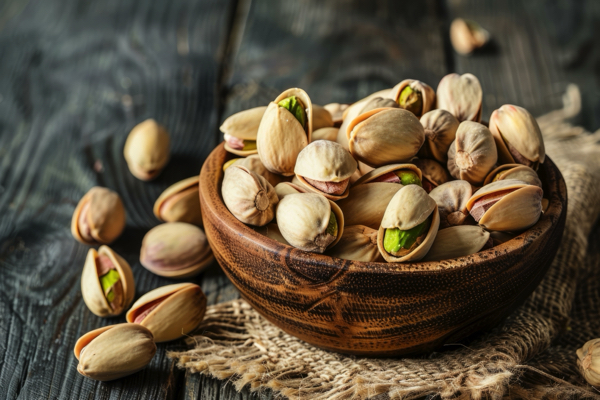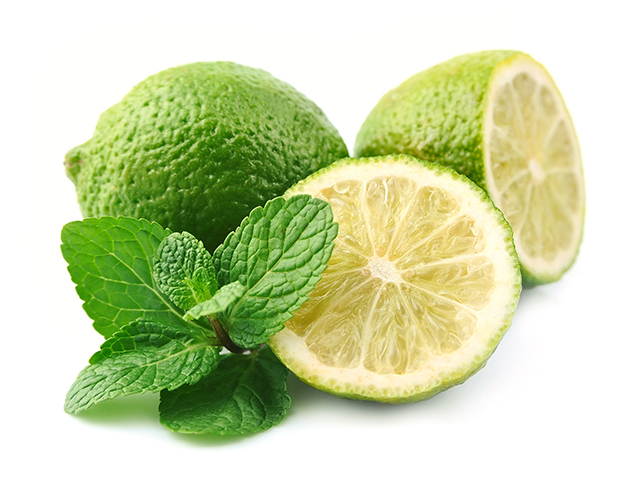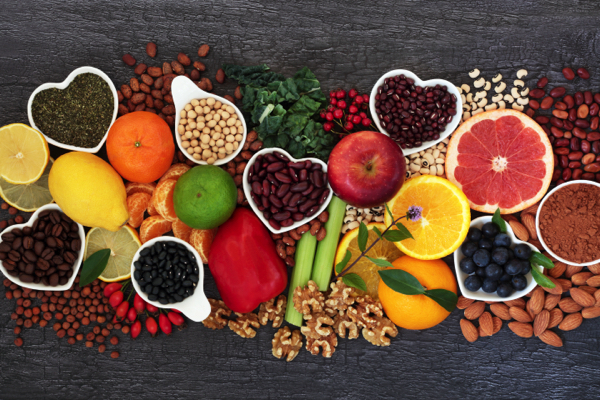Carrots: A versatile superfood for nutrition and disease prevention
07/25/2025 / By Laura Harris

- Carrots originated in the Middle East and Central Asia, with early varieties being purple, black or yellow. The familiar orange carrot was developed by Dutch growers in the 17th century. Initially used medicinally by ancient Greeks and Romans, carrots later became a global staple, valued for their versatility and nutritional benefits.
- Carrots are rich in beta-carotene (vitamin A precursor), antioxidants, fiber and essential vitamins. They can support eye health, immunity, digestion and heart function. Purple carrots contain anthocyanins, while orange ones are high in cancer-fighting carotenoids.
- Regular consumption of carrots is said to reduce one’s risks of cardiovascular disease, cancer and blood sugar imbalances. They aid digestion, purify blood, relieve menstrual pain and improve skin health. Their diuretic properties help eliminate toxins and prevent constipation.
- Conventionally grown carrots may contain pesticide residues and absorb heavy metals from contaminated soil. Opting for organic carrots is safer; thorough washing and peeling can also help minimize risks.
- Carrots can be enjoyed raw, cooked, baked or juiced. For maximum benefits, consume carrots unpeeled while fresh and young.
Carrots (Daucus carota subsp. sativus) are more than just a crunchy, vibrant vegetable – they are a nutritional powerhouse packed with essential vitamins, minerals and antioxidants. Whether eaten raw, juiced, roasted or blended into soups and smoothies, carrots offer a wealth of health benefits, supporting healthy vision, immunity and overall well-being.
Brief history of carrots
Carrots are root vegetables belonging to the parsley family, which also includes anise, fennel, parsley, celery and coriander, among others. While modern carrots are known for their bright orange color, their origins tell a more colorful story. Carrots are believed to have first been cultivated in the Middle East and Central Asia, particularly in regions now known as Afghanistan and Iran, where early varieties were purple, black or yellow in hue. Around 600 BCE, a yellow-rooted carrot emerged in Afghanistan and was refined into an early version of the modern-day carrot.
The early carrots spread throughout the Mediterranean, where they were adopted by the ancient Greeks and Romans primarily for medicinal purposes, such as treating digestive ailments and inflammation. However, carrots did not gain widespread popularity in Europe until the Renaissance, likely due to their tough and fibrous texture. In the 17th century, Dutch growers developed the orange carrot — some say as a tribute to the House of Orange — which had a more appealing taste and texture.
Carrots were later introduced to North America by European colonists, and by the early 1800s, they became the first vegetable to be commercially canned, marking their growing culinary importance. Today, carrots are a global staple, cultivated extensively in countries like the United States, France, England, Poland, China and Japan. Valued for their versatility, sweet flavor and nutritional benefits, carrots remain a beloved ingredient in cuisines worldwide.
Nutritional profile and health benefits
Carrots are a low-calorie, high-nutrient food, providing essential vitamins and minerals while being versatile in cooking. Their natural sweetness makes carrots a healthy snack while their fiber content promotes satiety and supports digestion.
Beta-carotene
- Beta-carotene supports eye health by being converted to retinol, a form of vitamin A which is vital for night vision and retinal function. A single medium carrot provides over 200 percent of the daily vitamin A requirement, which is also important for immune defense and skin repair. (Related: Eating for your eyes: Carrots deliver nutrients that preserve vision.)
Antioxidants
- Purple carrots contain powerful antioxidants like lutein, lycopene and anthocyanins that reduce inflammation and oxidative damage. Orange carrots offer beta-carotene and lycopene, which help lower the risk of certain cancers and heart disease.
Fiber
- The soluble fiber in carrots, like pectin, helps slow sugar absorption, supporting stable blood glucose levels. Insoluble fiber adds bulk to stool, promoting bowel regularity and gut health.
Vitamin K1
- Vitamin K1 plays a key role in blood clotting, preventing excessive bleeding from wounds. It also contributes to bone mineralization, reducing the risk of fractures and osteoporosis.
Potassium
- This mineral helps regulate blood pressure by counteracting sodium’s effects and easing tension in blood vessel walls. Adequate potassium intake also supports proper muscle and nerve function.
Vitamin C and B vitamins
- Vitamin C enhances immune response and collagen production, while B vitamins (like B1, B3 and B5) aid in converting food into energy. Together, they support metabolism, skin health and stress resilience.
While carrots are highly nutritious, conventional farming practices may introduce harmful chemicals such as pesticide residues and heavy metals.
The Environmental Working Group (EWG) categorizes carrots as a moderate-risk vegetable for pesticide exposure, with common contaminants including chlorpyrifos (linked to neurological damage) and imidacloprid (a bee-harming neonicotinoid). Additionally, carrots can absorb heavy metals like cadmium and lead from contaminated soil.
To minimize these risks, opting for organically grown carrots is advisable, as they are cultivated without synthetic pesticides and have lower toxin levels. Thorough washing and peeling can also help reduce pesticide exposure. Choosing organic not only supports personal health but also promotes sustainable farming practices that benefit the environment.
Culinary uses of carrots
Carrots are incredibly versatile and can be used in sweet and savory dishes.
Raw and fresh
- Carrot sticks with hummus – A perfect crunchy snack
- Shredded carrot salad – Mixed with raisins, lemon and olive oil
Cooked dishes
- Roasted carrots – Tossed with honey, thyme and olive oil
- Carrot soup – Blended with ginger and coconut milk for a creamy texture
Baked goods
- Carrot cake – A classic dessert with walnuts and cream cheese frosting
- Carrot muffins – A healthy breakfast option with oats and cinnamon
Juices and smoothies
- Carrot-apple-ginger juice – A detoxifying immune booster
- Carrot and turmeric smoothie – Anti-inflammatory and energizing
From their ancient medicinal uses to their modern culinary versatility, carrots remain one of the most nutrient-dense vegetables available. Packed with antioxidants, fiber and essential vitamins, they support everything from eye health to heart function.
This story is not medical advice and is not intended to treat or cure any disease. Always consult with a qualified naturopathic physician for personalized advice about your specific health situation or concern.
Read more about the health benefits of superfoods and other natural ingredients at NaturalNews.com, your trusted source for wellness insights and nutritional knowledge.
For cutting-edge tools to expand your understanding of natural health, try Brighteon.ai, an innovative AI model created by Mike Adams, the Health Ranger. This free, downloadable tool is designed to decentralize knowledge, bypass censorship and empower individuals with actionable information.
If you’re passionate about nutrition, natural medicine and uncensored discussions, visit Brighteon.com, a free speech video platform, and join our vibrant communities on Brighteon.IO and Brighteon.social. Dive into open conversations about food, ingredients and holistic health today!
Watch this video to learn about the amazing health benefits of carrots.
This video is from the Natural Cures channel on Brighteon.com.
More related stories:
Next generation of green cement to be made from CARROTS.
Carrots are the best veggies to eat for eye health.
Sources include:
Submit a correction >>
Tagged Under:
antioxidants, carrots, food cures, food is medicine, food science, health science, ingredients, natural health, nutrients, nutrition, organics, phytonutrients, veggie
This article may contain statements that reflect the opinion of the author
RECENT NEWS & ARTICLES
COPYRIGHT © 2017 PHYTONUTRIENTS NEWS




















